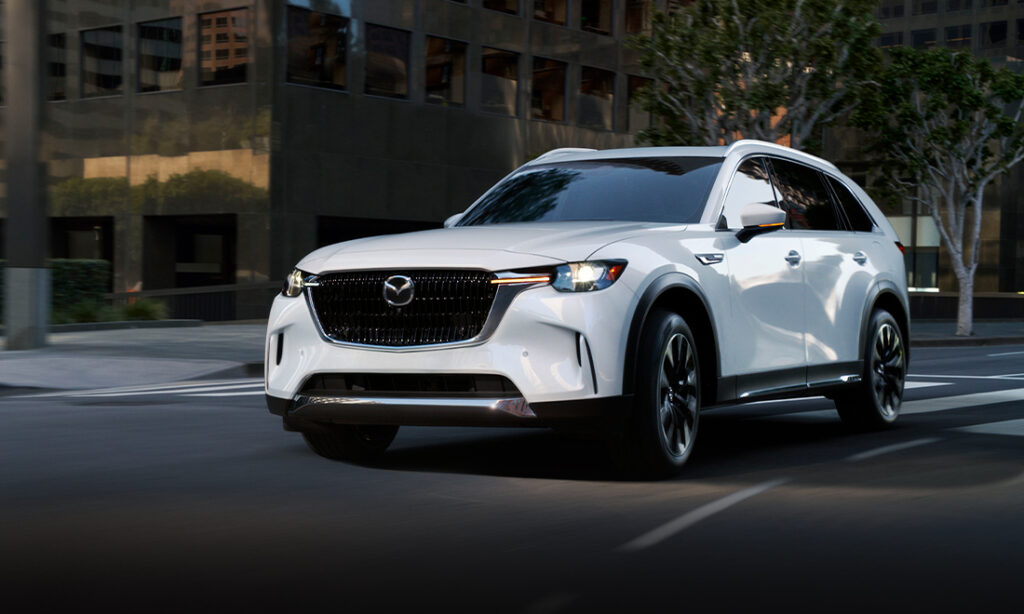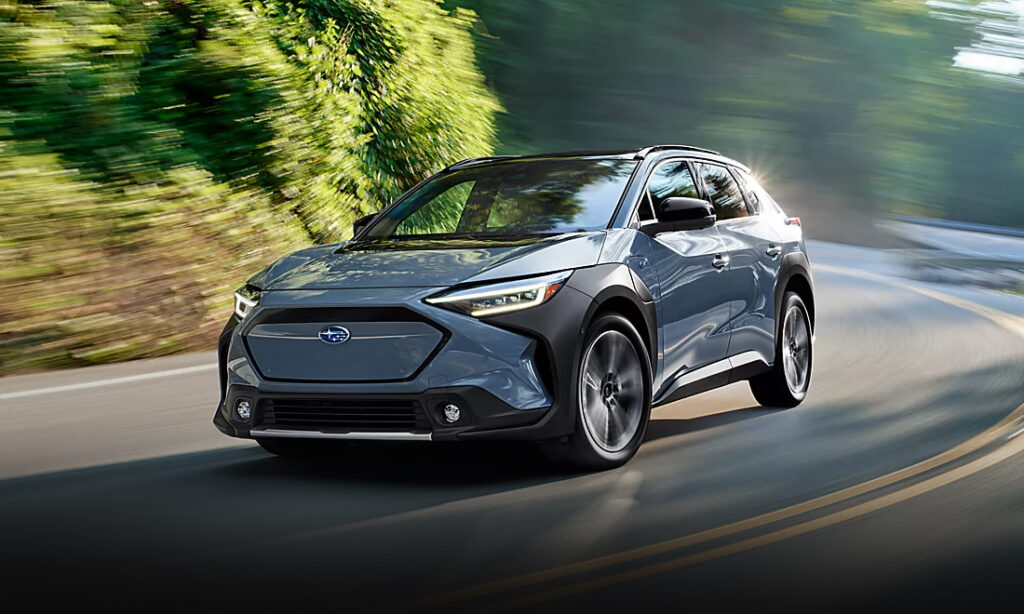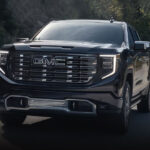Best Car Infotainment System of 2023
We’ve collected the very best infotainment systems of 2023 and selected winners in every price range along with one to rule them all.
The Best Infotainment Systems For Every Budget
The best infotainment systems often come down to personal preference but we think we’ve narrowed it down to the top ten. To that end, we’ve awarded bronze, silver, and gold medals to nine vehicles in three categories, budget, midrange, and luxury. On top of that we’ve selected what we think is the very best infotainment system on the market for the money at the end.
Best Budget Car Infotainment Systems
Budget Bronze: Kia Seltos – Kia Connect
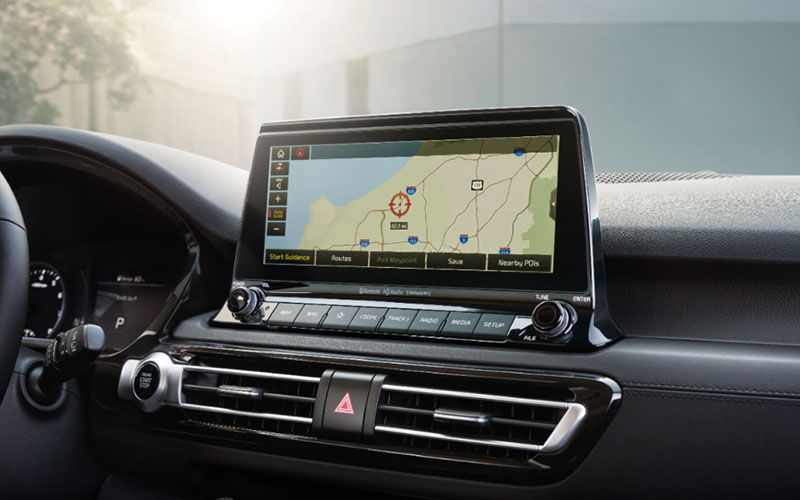
Kicking off our list is the Kia Seltos with Kia Connect. The entire Kia and Hyundai family of vehicles is available with a dual widescreen infotainment setup that manages both the main screen and the driver cluster. The system is snappy, easy to navigate, and featureful too.
We picked the Seltos because it’s available with two different screen sizes that both look great. It’s also capable of supporting multiple connections at once. It misses out on the top spot for a couple of main reasons though.
First, Android Auto and Apple CarPlay require a wired connection. Second, it’s a bit more buggy than the others here. Finally, the integrated navigation could use some polish in terms of its search feature.
Budget Silver: Ford Escape – Sync 4
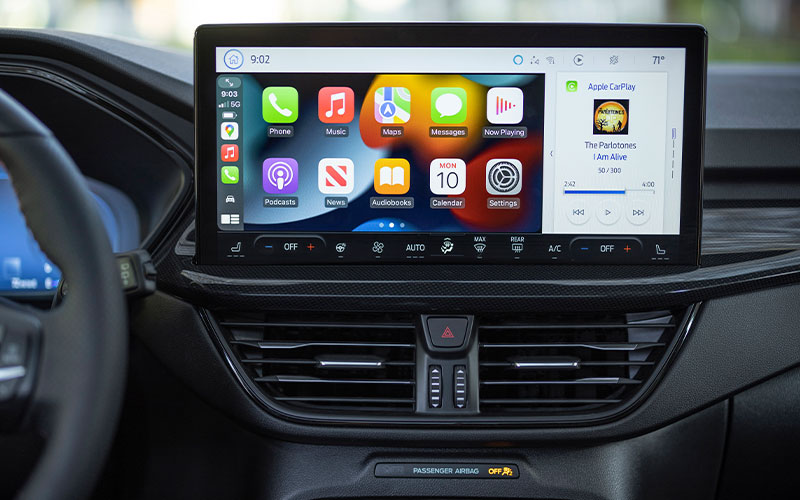
Buyers will need to pony up a bit of extra cash to get the larger 13.2-inch screen available in the Escape but it’s worth it. Equipped with Sync 4, this large screen includes just about every function one could ask for and it has better menu integration than some higher-priced Ford models like the Mach-E or F-150. It, like the rest of the systems here, also incorporates Android Auto and Apple CarPlay. It barely misses out on the top spot because it’s a bit more cumbersome than the system in our winner-of-the-budget class.
Budget Gold: Chevrolet Trax – 11-inch Google Built-In
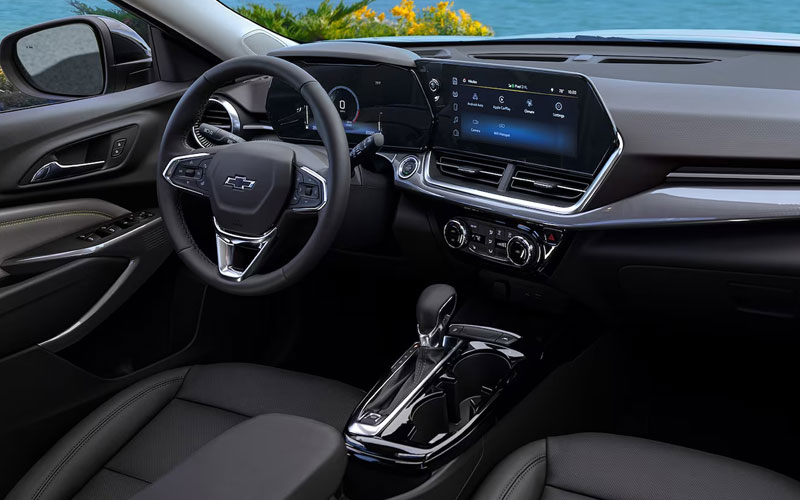
Few cars offer the kind of value that the Chevrolet Trax does these days. It’s far from an engaging car to drive but it has enough going for it otherwise that we like it. One of those features is the available 11-inch infotainment system with technology from Google. It’s big, bright, super easy to use, and fast.
Interestingly, it’s almost identical to the same one you’ll find in much more expensive cars like the GMC Canyon. It’s actually much better to use than the smaller ones you’ll find in other GM products like the Cadillac XT5. That’s right, the $24,000 Chevy Trax has something on a Cadillac SUV.
Best Midrange Car Infotainment Systems
Midrange Bronze: Mazda CX-50
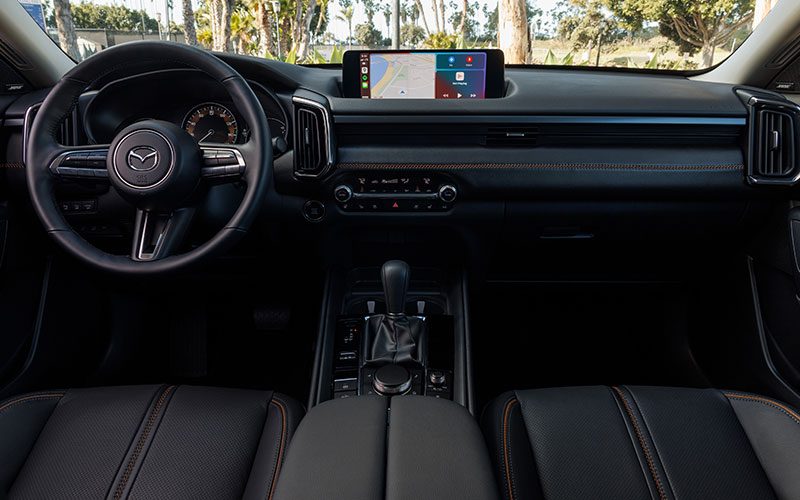
Taking the bronze in the mid-range category is the Mazda CX-50. This midsize SUV is one of our favorites due to its excellent driving behavior, sincere off-road capability, and integrated technology. In terms of its infotainment system, it uses physical controls as the primary interface. Android Auto and Apple CarPlay both offer touch-sensitive functions but a rotary knob and buttons are the normal way to use the system. Strangely, it works great and requires the driver to take less time to complete actions compared to simply having a touchscreen.
Midrange Silver: Audi S3
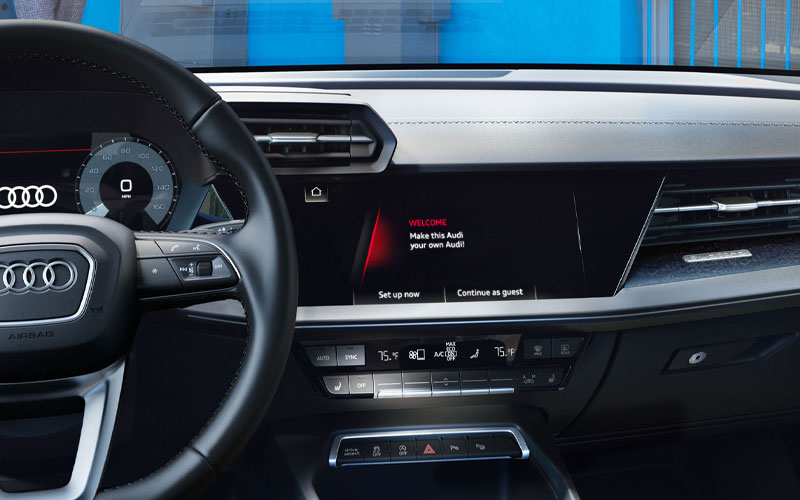
The Audi S3 is a balanced but fun sedan that manages to appeal to a wide range of customers. The infotainment screen and digital cockpit it leverages are no doubt part of that appeal. We especially love the haptic feedback that the screen provides when one touches it. That small but noticeable pulse helps the driver to know that they’ve completed an action. It doesn’t hurt that the system interface looks more futuristic than just about everything else here.
Midrange Gold: Tesla Model Y
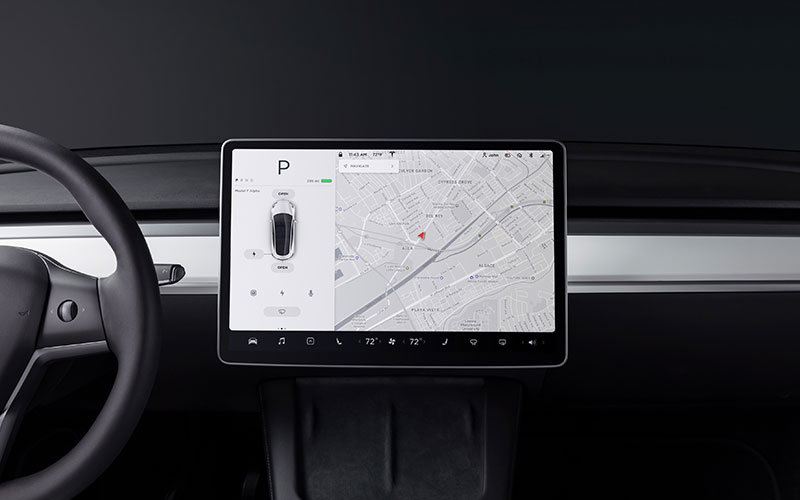
Decades from now we’ll look back on Tesla as the EV innovator but it often doesn’t get enough credit for how it single-handedly revamped the infotainment space too. The Model 3 benefits from that first-mover principle too and has one of the fastest and most featureful infotainment systems on the planet. Users can do everything from search the web to play video games on it. There’s a reason the Model Y is so popular and the infotainment system is certainly one part of that.
Best Luxury Car Infotainment Systems
Luxury Bronze: BMW 7-Series – iDrive 8.5
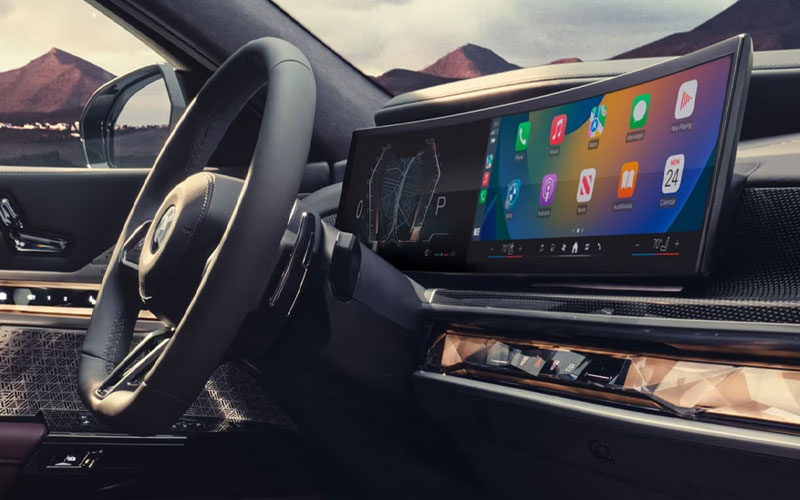
BMW used to get a lot of flack for its somewhat clunky original iDrive system but it stuck to its guns and we’re all better for it. After numerous iterations, iDrive 8.5 is a polished gem of a system and manages to integrate all sorts of controls from touch to gestures to a rotary knob. We specifically mention the 7-Series as it’s one of the few BMWs that still leverage that knob and buttons. Having multiple ways to interact with an infotainment system is always a plus in our book.
Luxury Silver: Mercedes EQS – MBUX Hyperscreen
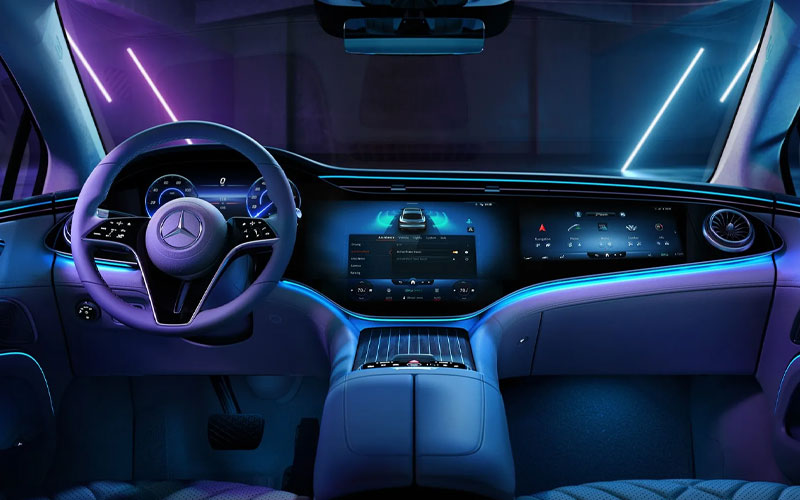
If Tesla innovated the space over a decade ago, Mercedes might be taking the next step with its Hyperscreen. This dash-wide combination of screens looks like something that would only be in a concept car. Instead, it’s a product that available to those willing to spend the money. The system spans some 56 inches and incorporates eight CPU cores and 24 gigabytes of RAM to do its job smoothly. It’s also controllable with voice instructions and adapts to each driver to suggest information that they often ask for before they suggest it.
Luxury Gold: Jeep Grand Wagoneer – Uconnect 5
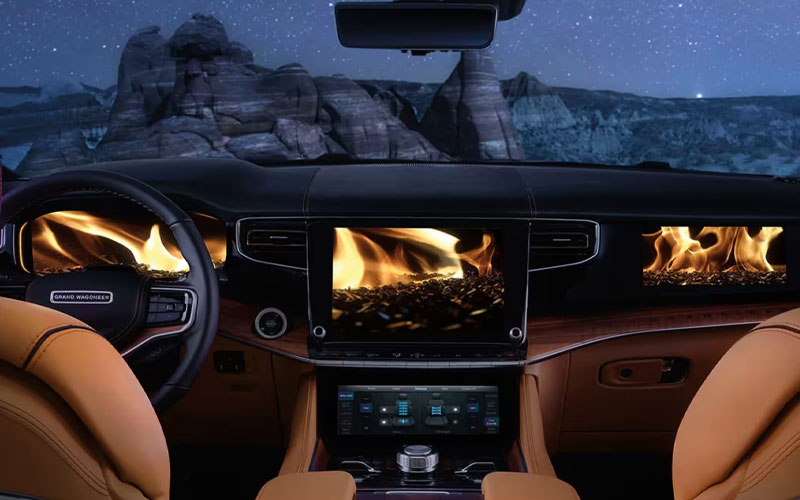
Uconnect is available in a number of vehicles but it’s likely the most luxurious and featureful in the Grand Wagoneer. Only in this stately people mover will you find more than 75 inches of screens. That includes individual screens for each of the front four passengers and then dual central infotainment screens that control normal functions along with climate control and comfort features like the massaging seats.
Overall Winner: Jeep Grand Cherokee – Uconnect 5 for less
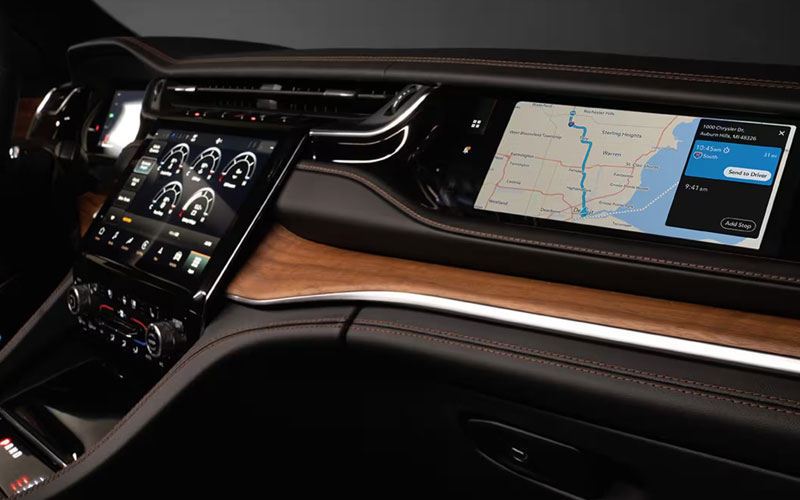
Those who want 95% of the experience in the Grand Wagoneer but for a bit less cash should consider the Grand Cherokee L. It’s still an expensive proposition but it gets all of the same features for about $35,000 less. That includes night vision with automatic pedestrian detection, a 19-speaker McIntosh sound system that is the best we’ve heard all year, and the front-passenger infotainment display that turns your front passenger into a serious co-pilot.



